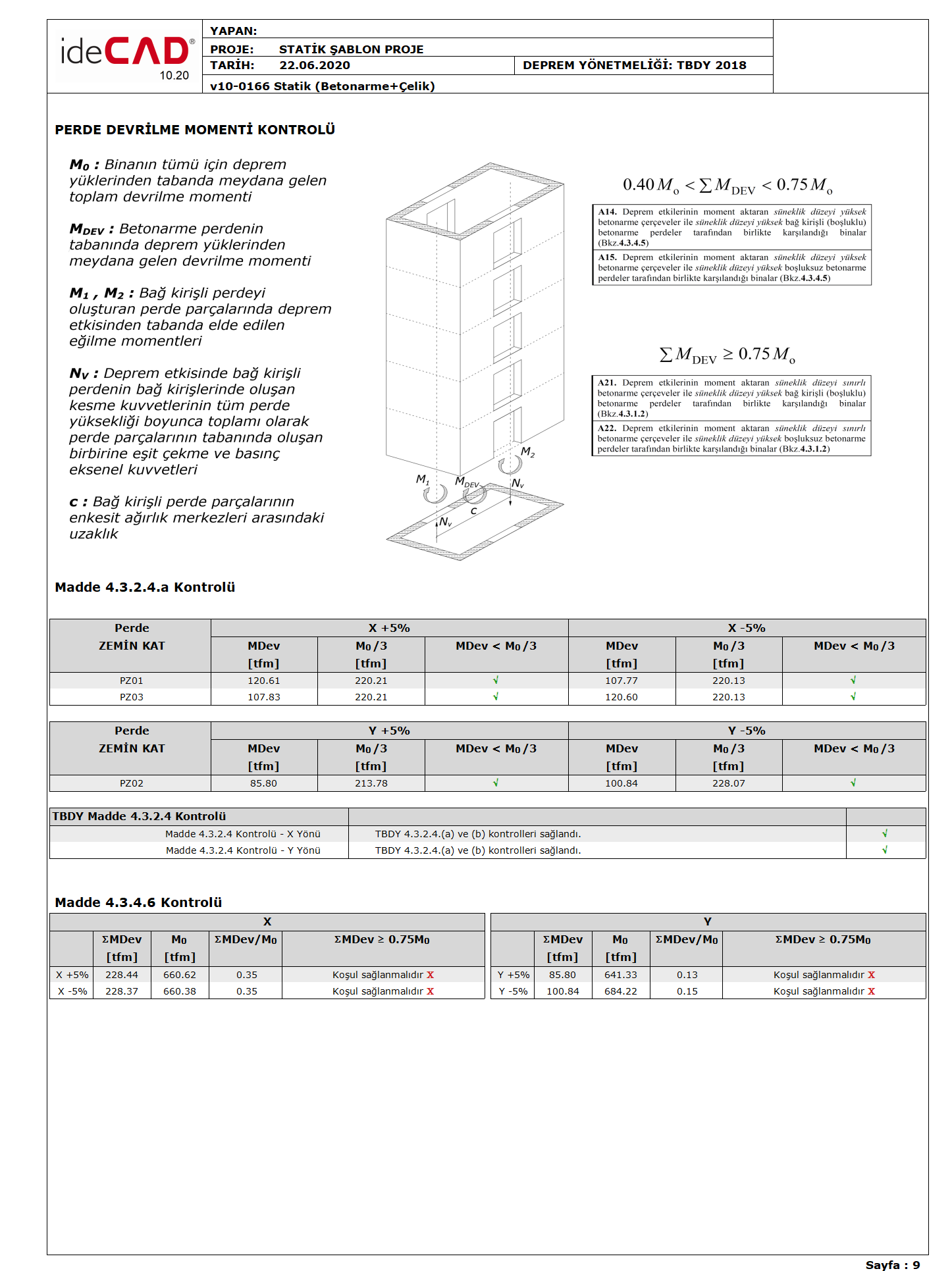Overturning Moment Condition (0.75) for Shearwalls (4.3.4.6)
In mixed structural systems of ductility level, the sum of the overturning moments arising from earthquake loads at the base of reinforced concrete walls with or without high ductility level is automatically compared with the tipping moment occurring at the base from earthquake loads for the whole building according to Equation 4.3 .
ICONS
BYS = Building Height Class
DTS = Earthquake Design Class
D = Strength Redundancy Coefficient
M DEV = Tipping moment caused by earthquake loads at the base of the reinforced concrete wall or braced frame
M o = Total tipping moment at the base from earthquake loads for the whole building
R = Structural System Behavior Coefficient
The ductility level formed by reinforced concrete frames with limited ductility level and reinforced concrete walls with high ductility level creates mixed structural systems. Contained in these types of carrier systems ductility level higher in the gaps or spaces curtain, the sum of which overturning moment resulting from the earthquake loads at the bottom of the screen, ME GIANT , the total overturning moment occurring at the base of the seismic load for the entire building, MI that shall not be less than 75%. This relation is shown in Equation 4.3 .

In cases where Equation 4.3 provides, the R and D coefficients given in Table 4.1 are taken into account for mixed structural systems of ductility level formed by reinforced concrete frames with limited ductility level and reinforced concrete walls of high ductility level . ( A21 and A22 carrier systems)

In cases where Equation 4.3 does not provide, for cases where all of the earthquake effects [∑M DEV <0.75M o ] are met with frames with limited ductility level , the R and D coefficients given in Table 4.1 and the maximum permissible DMS are taken into account.

"Curtain Tipping Moment Control" report is shown as an example below. Since Equation 4.3 is not provided in this report , for cases where all earthquake effects are met with limited ductility level frames , the R and D coefficients given in Table 4.1 and the maximum permissible IMS should be considered.

